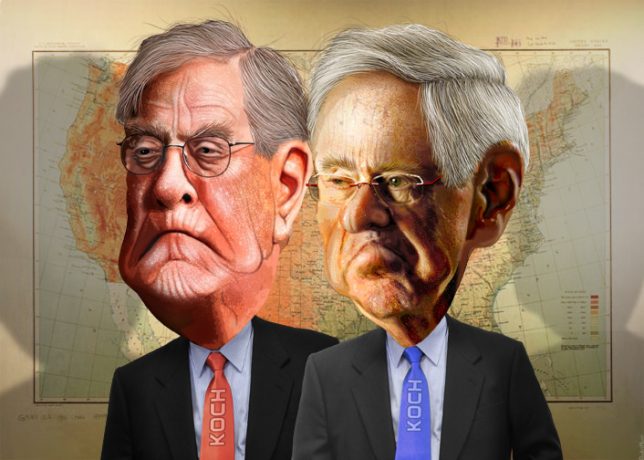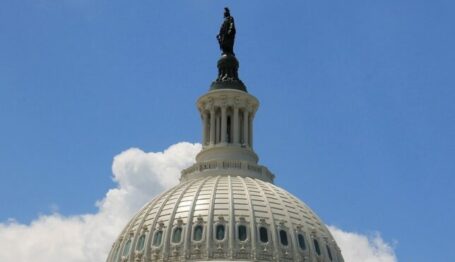Philanthropy
Donors, Not Dictators


This article was originally published by Philanthropy Daily on October 31, 2018.
If you read enough of the writings of New Yorker writer Jane Mayer you learn very quickly that, while in general, she doesn’t like conservatives, two donors she really doesn’t like are Charles and David Koch.[1]
I reviewed Mayer’s book Dark Money for National Review, but my review is behind a paywall. However, my colleague Scott Walter reviewed Mayer’s book here and amply describes the many ways Mayer distorts the record of the Kochs’ donations to nonprofits over the decades.
Mayer continues her Koch-bashing with this profile of Vice President Mike Pence. The Kochs, you may recall, are no fans of President Trump, with Charles Koch famously saying that the choice between Donald Trump and Hillary Clinton as one between “cancer or heart attack.” But that doesn’t matter, according to Mayer, because the vice president is a Koch mole.
She quotes Sen. Sheldon Whitehouse (D—Rhode Island) as saying, “If Pence is to become President for any reason, the government would be run by the Koch brothers—period. He’s been their tool for years.”
She then quotes Steve Bannon, who has a hearty appetite for sticking it to his foes. Bannon said that he was concerned that Pence “would be a President that the Kochs would own.”
The Kochs, Mayer writes, use their wealth “to finance candidates, think tanks, pressure groups, and political operatives who support an anti-tax and anti-regulatory agenda, which dovetails with their financial interests.”
Excuse me? Charles Koch has been fairly straightforward about what he believes in, as I noted in this post describing a lengthy interview he gave to the Financial Times. You may disagree with his beliefs, but at least give the man credit for holding sincerely held and consistent political views. He does not seem to me as cynical as Mayer makes him out to be.
Mayer then provides biographical details about Vice President Pence, including something I didn’t know—in the early 1990s he was president of the Indiana Policy Review Foundation a state free-market think tank. Mayer uses this time in Pence’s career to explain the State Policy Network to her readers. She temporarily pushes aside her Koch-bashing to take a whack at Thomas A. Roe, who helped create the State Policy Network in the 1980s and 1990s. According to Mayer, Roe “was said to have told a Heritage (Foundation) board member, ‘You capture the Soviet Union—I’m going to capture the states.’”
This alleged statement by Roe couldn’t be fact-checked, since Roe died in 2000.
But even a quarter of a century ago, according to Mayer, the Kochs had their eyes on Pence. Her evidence is that an adjunct fellow of the Indiana Policy Review Foundation is Cecil Bohanon, an economist at Ball State. In 2016, Mayer writes, John Hardin, who directs university relations for the Charles Koch Foundation, “told an Indiana newspaper that the Kochs had been funding Bohanon’s work as a professor of free-market economics at Ball State University ‘for years.’”
First off, Bohanon is not a professor of “free-market economics,” which would mean that he holds a professorship of free enterprise. He’s an economist, and his professorship is not endowed. Second, I tracked down the article, from the Muncie Star-Press where Hardin is quoted. The piece is about how the Charles Koch Foundation, collaborating with Papa John’s founder John Schnatter (a Ball State alumnus) donated $3.25 million to the university for the John E. Schnatter Institute for Entrepreneurship and Free Enterprise. The piece says nothing about the Indiana Policy Review Foundation.
The story about Cecil Bohanon illuminates Mayer’s methods. Professor Bohanon has been funded by the Charles Koch Foundation, including winning a seven-figure grant. Since he is an adjunct fellow (probably unpaid)[2] at a think tank that Mike Pence headed 25 years ago, his funding is proof that the Kochs control Pence.
Mayer has a list of people in the Trump administration that she believes “have ties to the Kochs and to Pence.” Some do indeed have ties. The White House director of legislative affairs, Marc Short, worked for the Koch-funded Freedom Partners before he joined the government. Secretary of State Mike Pompeo was Charles Koch’s congressman when he was in the House of Representatives. White House counsel Donald McGahn had two Koch-backed organizations—Freedom Partners and Americans for Prosperity—as his clients.
But Short left the government in July to become a fellow at the University of Virginia’s Miller Center. Environmental Protection Agency director Scott Pruitt, who Mayer said, “had been heavily supported by the Kochs,” is also no longer in government.
ProPublica’s “Trump Town” project, that gives short biographies of members of the Trump Administration, reports that among Donald McGahn’s other clients were the Republican National Committee and the National Rifle Association. It is fair to say he is connected to the Koch brothers, but unfair to say that they control him.
Other connections Mayer makes are more dubious. Patrick Traylor, who is the deputy assistant administrator for enforcement and compliance assurance at the Environmental Protection Agency (where he oversees enforcement of pollution regulations) did indeed have Koch Minerals as a client when he was in the private sector. But he had 28 other clients, including Daimler, Mercedes-Benz, and U.S. Steel. Does Mayer have any evidence that Koch’s company had a majority of Traylor’s time when he was an attorney?
Finally, Mayer says that Secretary of Education Betsy DeVos “had been a major member of the Kochs’ donor network.” Of course Charles Koch and Betsy DeVos are allies who work together on causes they sincerely believe in. They might even be friends! But unless Mayer has evidence that the DeVos family funded projects they didn’t want to fund because they obeyed the Koch brothers’ orders, we should reject a claim that DeVos is some sort of Koch tool.
Sen. Sheldon Whitehouse told Mayer the Kochs “will stick one hundred of their own people into the government—and Trump will never notice.”
Sen. Whitehouse’s claim can be checked. Here, according to ProPublica’s Trump Town database, are the numbers of people in the Trump administration who formerly worked for Koch-funded organizations[3]:
- Americans for Prosperity: 4
- Americans for Prosperity Foundation: 2
- Freedom Partners: 13 (including Marc Short)
- Koch Industries: 2
- Koch Companies Public Sector: 1
- Charles Koch Foundation: 1
- Charles Koch Institute: 1
That’s two dozen people, many of whom are speechwriters or low-level assistants.
If Charles Koch calls Mike Pence, will he return the call? Of course. But I’m sure the vice president returns the call of many people—and more than one billionaire. Of course, the Kochs have influence. But they’re donors, not dictators. The notion that the Koch brothers control the Trump administration is daydreaming on the part of Sen. Sheldon Whitehouse, Steve Bannon—and Jane Mayer.
—
[1] For the record, I have never requested any money from the Koch brothers and as far as I know none of my work has been funded by the Kochs.
[2] According to its 2016 Form 990, the Indiana Policy Review Foundation has revenues of $140,078. Its executive director, T. Craig Ladwig, earned a salary of $101,521.
[3] There is also one guy who worked for “Koch Consulting,” but he appears to be a guy whose last name is Koch and not someone who worked for Charles or David Koch.



